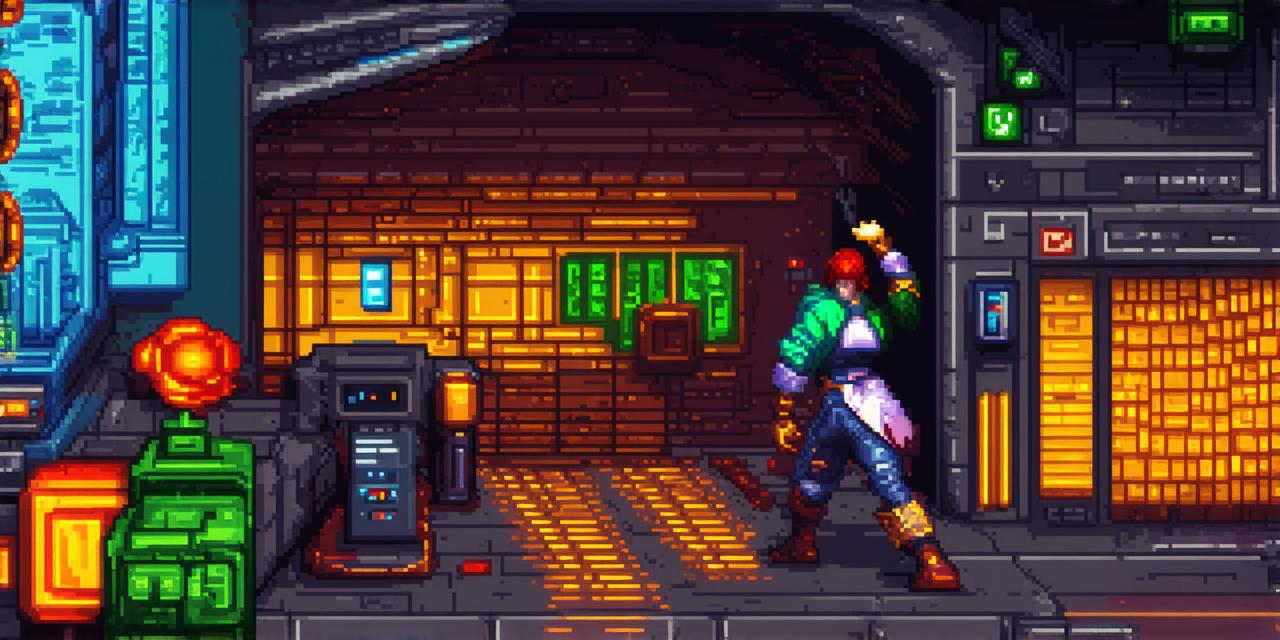In the rapidly evolving world of video games, there are countless factors that contribute to the success and appeal of a particular game. As a game developer, it is essential to understand these factors and incorporate them into your game design process in order to create an engaging and immersive experience for players.
1. Game Mechanics:

The mechanics of a game refer to the rules and systems that govern the interactions between the player and the game world. A well-designed game mechanic should be intuitive, easy to learn, and provide a sense of progression as the player advances through the game. Examples of effective game mechanics include puzzles, platforming, and strategic decision-making systems. It is important to ensure that the game mechanics are balanced and challenging enough to keep players engaged but not so difficult that they become frustrated.
2. Storyline and Narrative:
A compelling storyline and narrative are essential for creating an emotionally engaging game experience. Players should be invested in the characters and the world they inhabit, and the story should provide a clear sense of direction and purpose. A well-written story can also enhance the replayability of a game, as players may want to return to explore different endings or outcomes. It is important to ensure that the storyline and narrative are well-crafted and engaging, and that they complement the gameplay mechanics and graphics.
3. Graphics and Art Style:
The visuals of a game can have a significant impact on its appeal and immersion. A high-quality art style should be consistent throughout the game and reflect the tone and atmosphere of the storyline. The use of lighting, textures, and special effects can also enhance the overall experience and create a sense of wonder and awe for the player. It is important to ensure that the graphics are of high quality and that they are optimized for the target platform.
4. Sound Design:
Sound design plays a crucial role in creating an immersive and engaging gaming experience. The use of music, sound effects, and voice acting should be carefully crafted to complement the gameplay and enhance the emotional impact of key moments. A well-designed soundscape can also help to create a sense of atmosphere and immerse the player in the game world. It is important to ensure that the sound design is of high quality and that it is optimized for the target platform.
5. Multiplayer and Co-op:
Multiplayer and co-op modes have become increasingly popular in recent years, as players enjoy the social aspect of gaming and the opportunity to work together to achieve common goals. Incorporating multiplayer and co-op features into your game can not only increase replayability but also foster a sense of community and belonging among players. It is important to ensure that the multiplayer and co-op features are well-designed and balanced, and that they complement the gameplay mechanics and graphics.
6. Character Design:
Well-designed characters are essential for creating an engaging and memorable gaming experience. Characters should be visually appealing, have distinct personalities, and provide players with a sense of investment in their journey. Effective character design can also help to create a sense of empathy and emotional connection between the player and the game world. It is important to ensure that the characters are well-designed and that they complement the storyline and narrative.
7. Level Design:
Level design is crucial for creating an engaging and immersive gaming experience. Levels should be well-crafted, with a clear sense of progression and variety in gameplay mechanics. Effective level design can also help to create a sense of challenge and mastery as the player advances through the game. It is important to ensure that the level design is of high quality and that it complements the gameplay mechanics and graphics.
8. Replayability:
Replayability is an important factor to consider when developing a game. A game that offers multiple paths, alternate endings, and hidden content can provide players with a reason to return and explore new aspects of the game world. Incorporating replayable elements into your game can also help to increase its longevity and appeal to a wider audience.
